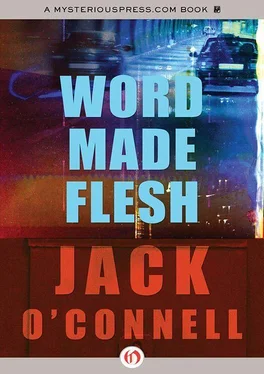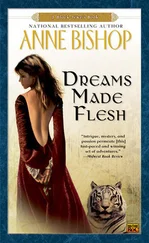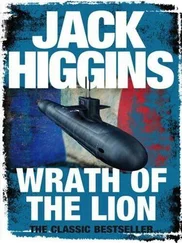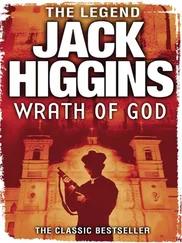“I’ve got the product,” Oster says, wagging the book. “My job’s all done, I guess.”
He moves for the stairwell and adds, “And nobody paid me to whack a brother officer.”
Sweating, his breathing labored, Oster kisses his own fingers and brings them to the lips of his comrades before rolling the bodies of Walden and Green into their makeshift grave. The boys shared everything in life, Oster reasons, so this interment shouldn’t trouble them. It’s a natural thing to do. As organic as these fat, red worms swarming in the bottom of this hole, waiting to help decompose the bodies back to the bone, to devour the flesh, transform it into energy.
Gilrein and the woman are long gone by the time Oster finishes filling the trench in the deepest part of the orchard. Oster knows he should be leaving too, getting down to that cafeteria in the Wing and delivering the book to Kinsky. Begging off the assorted innards in the glazed pear sauce and trying to save his bonus. Then maybe heading back to the Houdini and putting in a few hours with the needle if Mrs. Bloch is feeling inspired. Maybe Mrs. B can work Walden and Green into her map of the city. Some kind of representation. A symbol of his fallen brothers etched right into the skin. Something fitting.
He knows he should be going and yet he lingers in Wormland. Tamping down the already smooth grave with his boots. Toeing the pocked ground, the hundreds, maybe thousands of worm holes. And then Bobby Oster finds himself doing something wildly uncharacteristic. He feels his own forehead and wonders if he might be ill.
He sits down, gingerly, in front of the grave, his back against the base of one of the desiccated trees. And he opens Alicia’s book. He opens it randomly, somewhere in the middle, and brings a finger to a crumpled page. He’s shocked to find it’s not even a real book. The paper is cheap and thin, like notebook paper you might buy at the corner store. And there’s no fancy printing, just this terrible handwriting. Some of the lines are practically illegible. The letters don’t look familiar. But even if they did, getting the whole story would probably be impossible. All those bullet holes.
Oster is in the process of pushing his finger through one of the holes when Mrs. Bloch approaches from behind and pulls the blade of Kroger’s knife across his throat until the jugular is severed. It’s like slicing soft bread and she knows this is exactly how she will describe the act at some later date. She’ll turn slightly on her stool as one of the prodigies colors in some background. She will study the face of the child she has chosen and say, “Laik der vei du kaht entu frisch bred, gest oot uf der ufen, steel ahl meizt aend stemink.”
The spurt of blood paints Alicia’s page. Obliterates a long passage that might describe the death of Rabbi Gruen or the young mother and infant who dissolved within the bottom of the Ezzene mob. The blood hides the words that took those events and transformed them into something else, into a language that could hold the meaning of the Erasure and convey it across space and time and culture, across the gulf that separates primary from secondary experience, being from the lack of being. A language that could manage to keep the event pure and whole enough to make the child quake, even if only for a moment, with the immensity of the loss.
Though her job is to give the story to everyone who needs it, Mrs. Bloch is unconcerned as she pulls the dripping book out of Oster’s spastic hands and listens to the Magician thrash toward death.
She’s aware that she can never fill in what has been covered over or expunged. There’s just too much she doesn’t know. But she can hold on to whatever is left. She can become a constant and creative reader, even without her vision. And if her inherent ignorance of the author’s final intentions will always prevent her from delivering the complete narrative, still she possesses accounts of her own. Details which can be bound and spliced and grafted to Alicia’s tale. She can make a hybrid myth. A mutant legend. And in this manner, she’ll rebuild the book. In the end, that might be sufficient.
Because, if you want to badly enough, there are probably many ways to tell a story.
Relax. They will not bother you. These are simply a group of local fanatics. They follow the old whiskey priest. They are waiting to see if his prophecies of Armageddon come true. These are not the ones you need to fear. Calm yourself, please. This kind of stress will kill you, most certainly. I’ve seen it happen again and again. You should be happy we were able to get a booth. Drink your coffee. Try some of the food. Mr. Tang serves only the freshest of wares.
You owe yourself one final meal in the city. Can you walk away without so much as a last dinner? Reward yourself. You have been watchful and you have been patient. What you have done has required dedication and intelligence and I compliment you. Seriously now, not everyone would have persisted as you did. To be honest, I, myself, did not expect you to last so long.
And now we come to the end, the terminal moments of our time together. Do I embarrass you if I say that after what we have been through I feel entitled to call you friend? Embarrassment or not, this is the case. Who else have I been so close to? I do not mean to turn this into a confession of any sort, don’t get the wrong idea, as they say, but I think you will understand when I tell you that I am not what one would call an extrovert. I do not make friends easily. My days are spent much like yours — watching, waiting, trying to make sense of it all. I simply don’t know what else we can do. I am always open to ideas on the subject, but I have racked my brain for years and I can see no alternative. It is a lonely burden, yes? A difficult path to walk.
We are all plagued to one degree or another, I would think. Look at Gilrein there, on the pay phone. He is speaking to Mr. Willy Loftus. Yes, the Mortician. Very good, you catch on quickly. He is asking Mr. Loftus for assistance, requesting some aides be sent to the son’s farmhouse, some janitors to straighten up the place before the owners return home. Look at his face as he speaks. Watch the tension around the mouth, the biting of the lip as he listens to the Mortician’s instructions. Is he not the definition of the troubled man? And in this way is he not the mirror that each of us resists?
Did you see that? The way he shoved the disciples on his walk back to the hacks’ booth? Was there not just a bit more force than was necessary? Yes, they are blocking the aisle, swarming around the radio, but was this mundane aggression really necessary? Study the body language. Notice the rage in the musculature itself. If I’m not mistaken we’ll next see him reach into his pocket—
Yes, but allow me to confess. I’m not quite the psychic you believe. I noticed him out the window when he pulled into the parking lot. While you were praying, I saw him using a pry-bar to detach the medallion from the hood of the Checker. We should not treat this action lightly, however. Do you know how much livery medallions cost these days? And after all, this was his father’s medallion. The father’s legacy to Gilrein. The only thing of substance left to him but for the cab itself. Which, if I’m not mistaken—
Forgive me, I am not trying to show off or exhibit a skill that I do not possess. I saw him take the registration from the glove compartment and sign on the rear. And logic would ask what good is the medallion without the cab to go with it?
I want you to observe the woman, Wylie Brown, as he hands them both to her, medallion and registration. Try to notice the trembling. Perhaps a single shudder. Did you catch it?
She is not an intuitive creature by nature. But she is trying. Already she suspects the value of the things she has been given. She has been made witness by Gilrein’s gift. Baptized, if you will forgive the dramatic pronouncement. The medallion is the holy water and the registration is the balm.
Читать дальше












